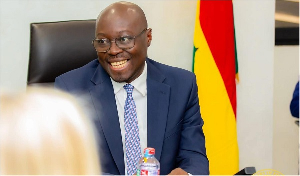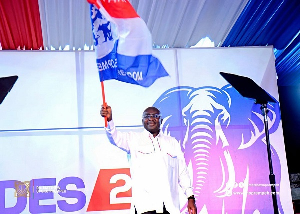The Government and the United Nations Development Programme (UNDP) on Thursday signed a 15 million-dollar agreement for support in five programme areas for the next four years.
The agreement under the new Country Co-operation Framework covering 2002 to 2005 are intended to assist the country to consolidate democratic governance, promote the activities of the private sector to create wealth and economic growth, reduce poverty, address the issues of energy and the environment and to promote gender equality.
The United Nations Resident Representative, Mr Alfred Salia Fawundu and the respective government Ministries that would implement the programmes signed the agreement.
Mr Fawundu said under the programme for governance, institutions like the Judiciary, Commission on Human Rights and Administrative Justice, National Media Commission among other organisations would be strengthened and their capacities enhanced to ensure that they effectively contributed to democratic practices in the country.
On poverty reduction, Mr Fawundu said the government would through the programme be assisted to implement successfully the Ghana Poverty Reduction
Strategy (GPRS) through improvements in the analytical and policy formulation capabilities of key policy divisions of Ministries, Departments and Agencies to internalise the GPRS in their planning and budgeting processes. Also to be executed is the translation of the GPRS into local languages so that it could be easily understood and used in planning and budgeting at the local level.
The UN Resident Representative said to promote the private sector to play its role effectively the programme would provide support for selected private and public institutions to facilitate advocacy, develop policies and undertake legal and regulatory reforms.
"A major expected outcome of the programme is an enhanced capacity of the new Ministry of Private Sector Development, to effectively perform its role of co-ordinating and harmonising all sectoral efforts aimed at fostering a competitive and rewarding business environment in Ghana," he said.
Mr Fawundu pledged UNDP assistance in providing technical support for the production and export of garments/textiles and cassava starch for the American and European countries, saying the initiative would reinforce existing small and medium enterprises towards developing a sustainable export business.
The programme would include the objective of mainstreaming gender concerns through capacity building and advocacy in support of government's efforts. Mr Fawundu said also of concern was the education of girls with emphasis on gender balance in education by 2005.
Under the programme for energy and environment, local and national capacity for poverty reduction through sound environmental management and practices would be enhanced in line with the goals of the GPRS in improving environment and natural resource management.
The Minister of Finance, Mr Yaw Osafo-Maafo said the overriding concern of the programmes was to help reduce both the level and incidence of poverty in the country.
He said the programmes had been tailored to meet critical national priorities adding that government's co-operation with the UNDP was based on the realisation that no external assistance could make any sustainable impact if the national government did not own the programmes. "I am happy to note that the various programmes have been formulated through a consultative process involving a wide range of stakeholders," he said.
Osafo-Maafo said he was happy with the continuous assistance from the development partners at a time many recipient countries of aid were being asked to justify their continuous demands for it. He said it was imperative for the country to show results of the effective use of such assistance in improving the well being of the people.
Mr Osafo-Maafo asked the various ministries that would implement the programmes to ensure that the activities were on track at all times, saying the extent to which a meaningful impact was made on the country's socio-economic landscape in the next four years depended to a large extent on the implementation process.
General News of Friday, 3 May 2002
Source: gna
Government, UNDP signs Agreement
Entertainment











